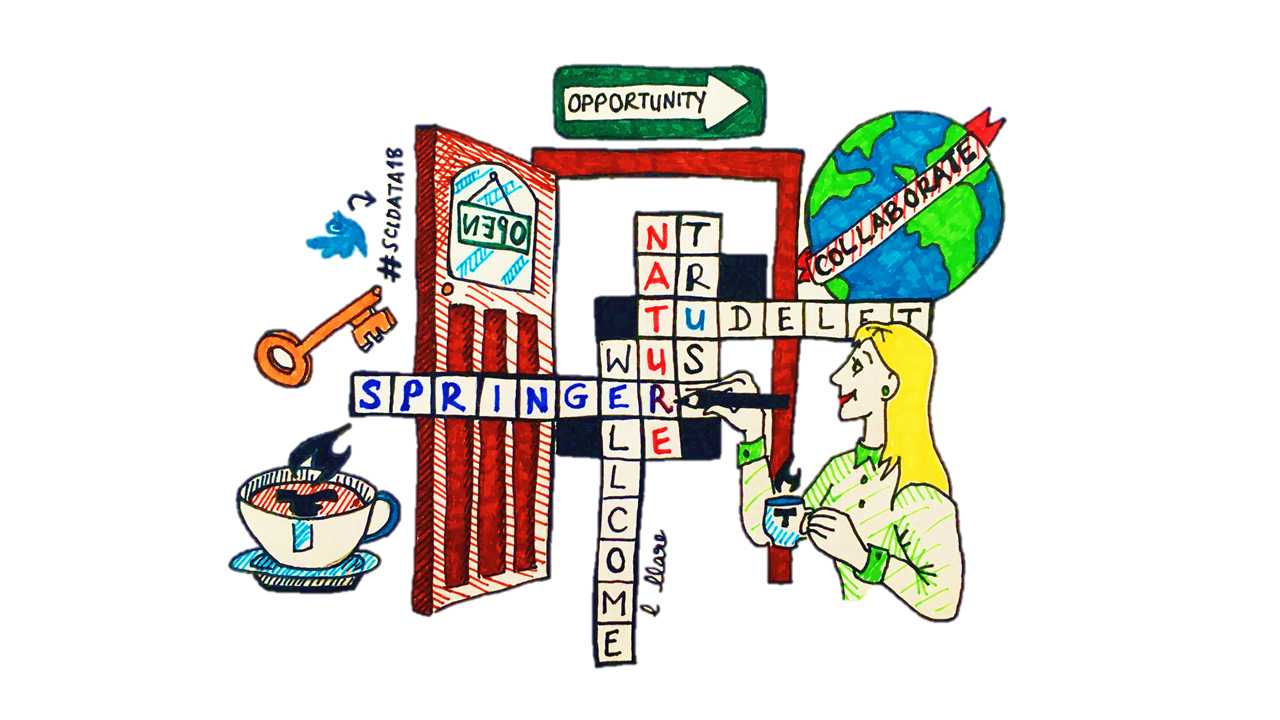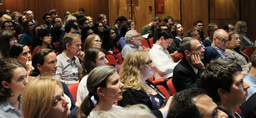‘Open Science’ opens doors: How #Scidata18 helped me unlock career opportunities
Published in Research Data


Lesson #1. You don’t have to be an Open Science expert to enter the competition.
Let’s rewind to this time last year. I was halfway through my PhD in Developmental Biology at the University of Nottingham. I had found my feet as a researcher and was taking steps towards becoming an independent scholar, conducting original experiments and collecting important data for my thesis. I stumbled across an advert for the ‘Better Science through Better Data 2018’ Early Career Researcher writing competition and felt compelled to enter. Unfamiliar with the concept of Open Science, I saw the competition as an ideal opportunity to learn how to achieve ‘better science through better data’ and as an aspiring science writer I believed that entering would provide me with the key to unlock my creativity and improve my writing skills.
Lesson #2. Choose a topic you’re interested in and research it.
As I researched the complex rationale behind Open Science I became curious to learn more. Open Science, an approach to science that is transparent, accessible and collaborative, facilitates knowledge exchange, propagates scientific enquiry, and promotes multidisciplinary collaboration on a global scale. In the digital era of big data, the Open Science movement is gaining traction amongst the scientific community but not all researchers are open to change. If Open Science is truly beneficial, why don’t all researchers adopt the practice? Intrigued by this controversy, I chose to submit an article about the ‘Benefits and risks to careers of practicing open research’ and was delighted when it was selected as a winner.
Lesson #3. Listen and be inspired.
Winning the competition meant that I was invited to attend the annual one-day ‘Better Science through Better Data’ conference, hosted by Springer Nature and the Wellcome Trust, at London’s iconic Natural History Museum. I was excited to help with the news coverage on the event by writing a report with the assistance of Nature editor, Jack Leeming, and it was a pleasure to share my experience with the other competition winners.
The conference programme was packed with inspiring keynote and ‘lightning’ talks from international researchers that showcased innovative approaches taken to drive cultural change towards Open Science. For me, it was particularly encouraging to hear about the efforts of early career researchers who advocate open and transparent working. Needless to say, I left the event feeling positive that we can all play a role in fostering an inclusive Open Science community and wrote my report, ‘Mentoring open science: We can all become Guardians of the (Data) Galaxy’, to share my personal highlights.
Lesson #4. Knock on doors and collaborate over coffee.
One particular keynote talk caught my attention. Delft University of Technology Data Stewardship Coordinator, Marta Teperek, introduced her Data Stewardship project as an example of how building a network of data specialists can help to drive cultural change within a research institution. Data Stewards are full-time employed staff embedded within each university faculty, serving as the first point of contact for research data management inquiries. More recently, TU Delft launched their Data Champions programme to build on this existing infrastructure and create a cohesive web of support for researchers.
To learn more about TU Delft’s community-based models, I took advantage of the coffee break at #Scidata18 to connect with Marta and discuss her projects. Drawn in by her enthusiasm and passion for engaging researchers with data, I enquired about the possibility of undertaking a professional internship in science communication at TU Delft Library. Marta obliged and the following months were spent planning my internship which brings me to where I am now as I write this blog post from the Netherlands!
Lesson #5. Take every opportunity.
At TU Delft, there are 47 Data Champions providing research data management support. Data Champions volunteer their discipline-specific expertise, advise members of their local research community on proper data handling and advocate FAIR data principles. They share their passion for knowledge exchange and the desire to build a collaborative, researcher-led community.
A primary objective of my internship is to reward and recognise the exemplary efforts of the Data Champions by giving them more visibility which in turn raises their professional profile. I conduct one-to-one interviews with Data Champions to learn more about their research projects; their motivations for becoming Data Champions; how they effectively engage with researchers; and, their future goals and aspirations. I write articles to showcase their success stories and lessons learned, and publish these on our Open Working blog under a dedicated tab titled ‘Data Champions’. Here are some examples:
- ‘The Changing Landscape of Open Geospatial Data’ – Balázs Dukai harnesses the power of existing data to build 3D city models
- ‘Keep calm and go paperless: Electronic lab notebooks can improve your research’ – Siân Jones champions the use of ELNs
- ‘Reduce, Reuse, Recycle knowledge: How open hardware can help to build a more sustainable future.’ – José Carlos Urra Llanusa shares his vision of open hardware
- ‘Can I really read your emotions if I look deep into your eyes’ – Joost de Winter explains the importance of replication research in the field of ‘Cognitive Robotics’
Additionally, I’m developing a ‘toolkit’; an information resource that can be used by institutions to inspire and inform them on how to successfully implement a community-based model to better engage researchers with research data. Watch this space!
I also had the opportunity of participating in a book sprint. For those unfamiliar with the concept, a ‘book sprint’ is the exercise of writing a book collaboratively in a short period of time, usually less than a week. Our multidisciplinary team of facilitators, authors and editors met at a hotel in the Hague, Netherlands, to write the open book, ‘Engaging Researchers with Research Data: The Cookbook’, in just three days! It was an ambitious task but a fulfilling experience that we all reflect back on with pride. To learn more about our book sprint read my article published on the Research Data Alliance (RDA) blog.

Take home messages
If you’re an Early Career Researcher with a passion for writing and ambition to contribute to the future of Open Science, I recommend that you enter this writing competition. #Scidata18 has opened doors to exciting career prospects that I would have never encountered. What’s more, winning the competition has given me confidence to expand my writing portfolio.
Take a chance and remember,
- You don’t have to be an expert on Open Science to enter the competition.
- Write about a topic that you’re interested in and your audience will follow.
- Listen, be inspired and learn from your peers.
- Collaborate over coffee, you never know where it might lead!
As the saying goes, ‘You’ve got to be in it to win it!’
Good luck!


Please sign in or register for FREE
If you are a registered user on Research Communities by Springer Nature, please sign in
Thanks so much for sharing this Connie! Great lessons - for life too, not just data :) I am very excited to learn more about the data toolkit you're devolving, what a great idea!
Thank you very much Ruth! :) I'll be sure to share the toolkit with you when it's complete. Thanks again, glad this is useful.
Great post Connie! Thanks for sharing.
For anyone who wants to enter the #SciData19 competition you can find details here